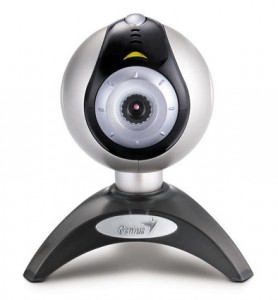
New allegations have surfaced in the case of a suburban Philadelphia school district accused of activating laptop web cameras to spy on students in their homes.
The Lower Merion School District snapped secret webcam pictures of a high school student when he was partially undressed or sleeping in his bed, and it also captured instant messages he exchanged with friends, the student charged in court papers last week.
The district concedes its efforts to find missing school-issued laptops by remotely activating the machines’ webcams was misguided, and officials vowed anew April 16 to release the findings of their internal investigation, “good and bad.”
The LANrev software program used by district officials took screen shots and webcam photos every 15 seconds when activated. The district thereby captured more than 400 screen shots and webcam images of Harriton High School sophomore Blake Robbins, according to court filings last week in Robbins’ lawsuit.
The suit, filed in February, exposed the tracking program and prompted an FBI investigation into possible wiretap violations, along with a debate among parents about whether to support the potential class-action lawsuit.
“A substantial number of webcam photos have been recovered in the investigation,” school board President David Ebby said in a statement April 16. “As we have made clear since day one, we are committed to providing all of the facts—good and bad—at the conclusion of the investigation.”
Lawyers involved in the case met April 16 to discuss a possible settlement.
Mark Haltzman, who filed the lawsuit on behalf of Robbins and his family, said evidence now shows the district used the tracking software for non-authorized reasons as well—for instance, when students failed to pay the required insurance or return the laptops at year’s end. At least once, a name mix-up led the district to activate the wrong student’s laptop, he charged.
“Thousands of webcam pictures and screen shots have been taken of numerous other students in their homes, many of which never reported their laptops lost or missing,” Haltzman wrote in a motion filed April 15.
According to Haltzman, technology coordinator Carol Cafiero refused to answer his questions at a recent deposition, citing her Fifth Amendment right against self-incrimination. She and technician Michael Perbix were the only employees authorized to activate the webcams. Perbix did not fight the deposition.
Haltzman called Cafiero a possible “voyeur” and wants access to her personal computer to see if she downloaded any student images. To support the charge, he cited her response to an eMail message from a colleague who said viewing the webcam pictures was like watching “a little LMSD soap opera.”
“I know, I love it!” Cafiero allegedly replied.
Her lawyer, Charles Mandracchia, did not immediately return a message left by the Associated Press but has said his client did nothing wrong. Cafiero makes $105,000 and Perbix $86,000. Both are on paid leave.
The wealthy suburban district—which spent about $21,600 per student in 2008-09, nearly twice the amount spent on Philadelphia students—issues $1,000 Macintosh laptops to 2,300 students at two high schools.
Despite widespread concern about the alleged spying, hundreds of parents have signed on to oppose the Robbins family’s suit for financial and other reasons. The district, meanwhile, insists it has no evidence of any intentional misuse of the tracking program.
“While we deeply regret the mistakes and misguided actions that have led us to this situation, at this late stage of the investigation we are not aware of any evidence that district employees used any LANrev webcam photographs or screenshots for such inappropriate purposes,” Ebby said in his statement.
Meanwhile, U.S. Sen. Arlen Specter, D-Pa., introduced a bill April 15 to treat video surveillance the same as electronic communication under the federal Wiretap Act.
“Citizens should not have to fear that cameras on their cell phones or computers—common features on many of today’s personal electronic devices—will be used in their homes without their knowledge to invade their privacy rights,” said Sen. Russ Feingold, D-Wis., a co-sponsor of the bill.
- ‘Buyer’s remorse’ dogging Common Core rollout - October 30, 2014
- Calif. law targets social media monitoring of students - October 2, 2014
- Elementary world language instruction - September 25, 2014


Comments are closed.